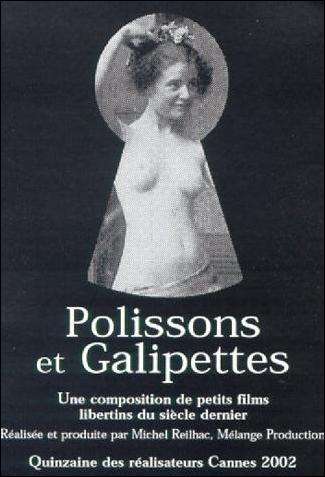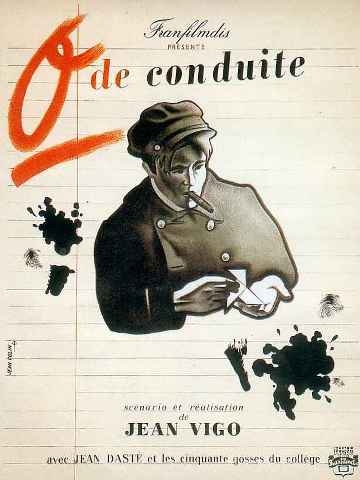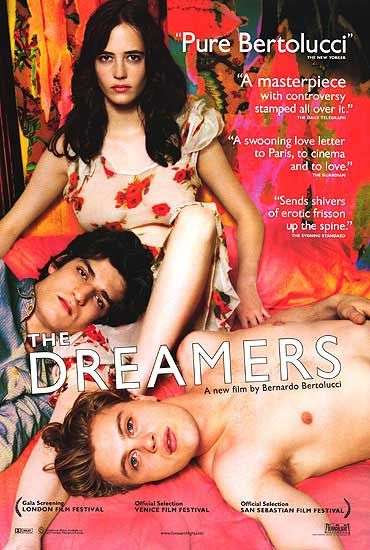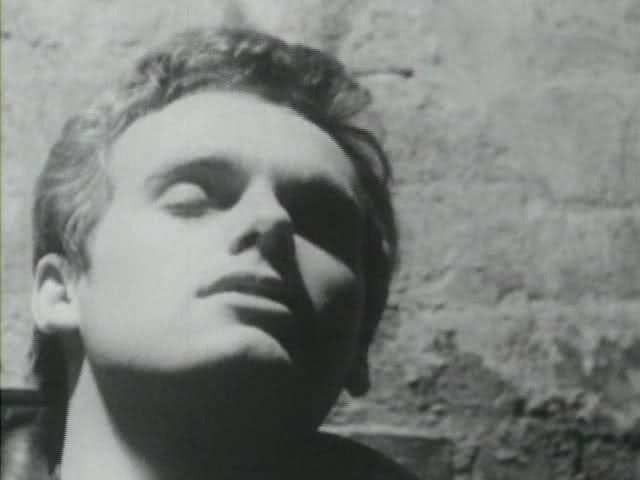from imdb:
In this adaptation of the Thomas Mann novel, avant-garde composer Gustave Aschenbach (loosely based on Gustav Mahler) travels to a Venetian seaside resort in search of repose after a period of artistic and personal stress. But he finds no peace there, for he soon develops a troubling attraction to an adolescent boy, Tadzio, on vacation with his family. The boy embodies an ideal of beauty that Aschenbach has long sought and he becomes infatuated. However, the onset of a deadly pestilence threatens them both physically and represents the corruption that compromises and threatens all ideals. Written by Eric Wees
Read More »
Queer Cinema(s)
-
Luchino Visconti – Morte a Venezia AKA Death in Venice (1971)
1971-1980ArthouseDramaItalyLuchino ViscontiQueer Cinema(s) -
Ingmar Bergman – Persona [+Extras] (1966)
1961-1970ArthouseDramaIngmar BergmanQueer Cinema(s)SwedenQuote:
Persona is arguably Ingmar Bergman’s most challenging and experimental film. Elisabeth Vogler (Liv Ullman) is an accomplished stage actress who, in the middle of performing Elektra, ceases to speak. Sister Alma (Bibi Andersson), the young nurse assigned to care for her, learns that there is nothing physically or even psychologically wrong with Elisabeth – she has simply, consciously decided not to speak. Alma (the name, not accidentally, is the Spanish word for soul) describes her initial impressions of Elisabeth as gentle and childlike, but with strict eyes. She takes Elisabeth to the attending physician’s remote summer house to facilitate her recuperation. At first, the two seem ideally suited: a talkative, candid, and inexperienced nurse, and a sophisticated, enigmatic, and silent patient. They take long walks, bask in the sun, and read together. It is obvious that their isolation has cultivated a sense of intimacy between them, albeit one-sided.Read More » -
Michel Reilhac – Polissons et galipettes aka The Good Old Naughty Days (2002)
2001-2010EroticaFranceMichel ReilhacQueer Cinema(s)SilentThis astonishing, scintillating collection from the silent era, most of which are from the 1920s, are genuine, legitimate and by today’s hardcore standards, amazingly charming, pornographic short films that leave nothing to the imagination. From predictable fantasy scenarios – monk spies on, then joins naughty nuns; teacher must spank naughty schoolgirls – to more esoteric fare (homosexuality and animal ecstasy, to name just two), vintage porn has never been more accessible…or attainable. The shorts in The Good Old Naughty Days were primarily designed to be shown in the waiting rooms of brothels, amusing patrons – and no doubt giving them some ideas – as they awaited their girl. They also reveal production standards far in advance of comparable films being made elsewhere at the time, as well as an inventive and often humorous array of diverse couplings. These films were usually created in a haphazard fashion in an afternoon with friends and local prostitutes lending a hand for a few cents. All of them requested to remain anonymous, which makes it impossible to identify who really acted or directed them. For this reason, it is rather delightful to watch these “actors” often having to readjust their wigs and fake moustaches in the middle of their scenes so as not to be recognized unmasked. It is nevertheless touching to see how fresh and naïve these films look in comparison with today’s X-rated film productions. Considering the age of these films, it is miraculous that they have been rediscovered and restored. These films are a part of our heritage and certainly a part of the secret history of cinema. In their own amusing way, these images involve us in a very direct, physical and intimate relationship with the good old days. These films have been restored by the Archives of the Centre National de la Cinématographie in France.Read More »
-
Jean Vigo – Zéro de conduite AKA Zero for conduct (1933)
1931-1940ArthouseDramaFranceJean VigoQueer Cinema(s)from allmovie guide.com
The shortest of French filmmaker Jean Vigo’s two feature-length films, Zero for Conduct (Zero de Conduite) is also arguably his most influential. The overtly autobiographical plotline takes place at a painfully strict boys’ boarding school, presided over by such petit-bourgeous tyrants as a discipline-dispensing dwarf. The students revolt against the monotony of their daily routine by erupting into a outsized pillow fight. Their final assault occurs during a prim-and-proper school ceremony, wherein the headmasters are bombarded with fruit. Like all of Vigo’s works, Zero for Conduct was greeted with outrage by the “right” people. Thanks to pressure from civic and educational groups, this exhilaratingly anarchistic film was banned from public exhibition until 1945. Among the future filmmakers influenced by Zero for Conduct was Lindsay Anderson, who unabashedly used the Vigo film as blueprint for his own anti-establishment exercise If…. Read More »
-
Bruce LaBruce – The Revolution is My Boyfriend (2004)
2001-2010Bruce LaBruceCampEroticaGermanyQueer Cinema(s)
Plot
The core plot begins with the kidnapping of Patrick, the son of a wealthy industrialist. Sexual and romantic engtanglements push the drama forward. At the film’s climax, Gudrun delivers a soliloquy on the importance of personal life in revolution. She puts particular emphasis on the breaking of heterosexual and possessive sexual norms, urging her comrades to join “The Homosexual Intifada”.
The pressure of Gudrun’s controlling personality causes the group to break up. Most of the urban guerrillas escape into the night. In the dénouement, the characters are visited some time later. Several have found happiness in the homosexual relationships established during their revolutionary activities. Che has become a terrorist trainer in the Middle East. Patrick escapes with Clyde, where they embark on a spree of bank robberies. This action is reminiscent of Patty Hearst’s actions with the SLA. Gudrun and Andreas settle down and have a child named Ulrike (after Ulrike Meinhof), whom Gudrun believes could embody the next generation of the Red Army Faction.Read More »
-
Bernardo Bertolucci – The Dreamers (2003)
2001-2010Bernardo BertolucciDramaItalyQueer Cinema(s)Left alone in Paris whilst their parents are on holiday, Isabelle (Eva Green) and her brother Theo (Louis Garrel) invite Matthew (Michael Pitt), a young American student, to stay at their apartment. Here they make their own rules as they experiment with their emotions and sexuality while playing a series of increasingly demanding mind games. Set against the turbulent political backdrop of France in the spring of 1968 when the voice of youth was reverberating around Europe, THE DREAMERS is a story of self-discovery as the three students test each other to see just how far they will go. THE DREAMERS was helmed by Bernardo Bertolucci, whose THE LAST EMPEROR swept the 1987 Academy Awards garnering nine Oscars© including Best Director and Best Picture. It marks his third film shot in Paris, following THE CONFORMIST and the Oscar-nominated LAST TANGO IN PARIS. The screenplay, adapted for the screen from his original novel, is by English author and film critic Gilbert Adair. THE DREAMERS was produced by Jeremy Thomas (BROTHER, SEXY BEAST) who teamed with Bertolucci on THE LAST EMPEROR, THE SHELTERING SKY and LITTLE BUDDHA. THE DREAMERS strikes a personal chord for both Bertolucci and Adair, for although their paths never crossed, they were both living in Paris at the end of the 60s, experiencing the events against which the film is set. Their love of cinema took them to the birthplace of the Nouvelle Vague (New Wave), immersing them in a strong international cinema culture.Read More »
-
Andy Warhol – Blow Job (1963)
1961-1970Andy WarholExperimentalQueer Cinema(s)Short FilmUSAReview by Tom Vick (Allmovie.com)
Probably the most notorious of Andy Warhol’s films, Blow Job has been called, jokingly, the longest reaction shot in the history of cinema. In it, an anonymous young man’s face is seen in close-up while he receives fellatio from an unseen partner. The serene voyeurism that runs through Warhols ’60s films reaches a kind of apotheosis in Blow Job. Sexuality, which is a distinct subtext in a number of his films, becomes the subject of this one but, in a typically Warholian joke on pornography, all the “action” occurs off-screen.Read More »
-
Jack Smith – Scotch Tape (1963)
1961-1970ExperimentalJack SmithQueer Cinema(s)Short FilmUSA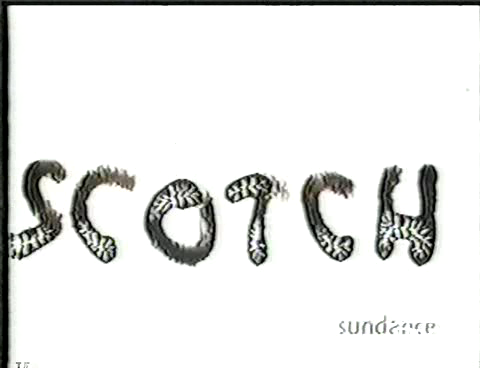
IMDB:
User Reviewnot sure why it’s titled this, but it’s a fanciful and exciting little trip
by Jack GattanellaJack Smith was one of the masters of the underground film-making ‘group’ in New York city in the early 60s, and this was one of the few films that Smith finished and screened. While nowhere near the notorious nature of Flaming Creatures or the color-grandeur of Normal Love, Scotch Tape is significant because in a 3-minute stretch of time Smith is able to convey a lot of energy and excitement over some footage that is hard to make out. It looks as those there are figures dancing among garbage or something, moving about, maybe even at 16 frames-per-second, and all done to a super catchy swing tune from the 30s.Read More »
-
Frank Mosvold – Summer Blues (2002)
2001-2010DramaFrank MosvoldNorwayQueer Cinema(s)Short FilmA film about four teenagers, two boys and two girls, and their relationship. It is a story of love and friendship, of loss and discovery, of the transition from childhood to maturity.
Mads and Kristian spend a summer weekend with their girlfriends at a summerhouse by the sea. When Mads and his girlfriend have a fight we find that Kristian may love someone else.Read More »



